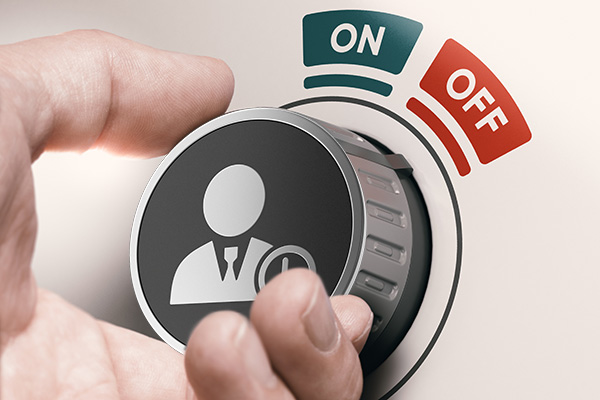How can we separate our private and professional spheres?
This question often comes to mind, especially when the weight of the workload is felt in our daily lives.
Facing a professional activity, we all need to have a more private space in order to recharge our batteries, enjoy our loved ones, and meet our various needs.
However, with the development of technologies to complement our work environments and new ways of working such as teleworking, it is increasingly difficult to set and respect boundaries to keep a work-life balance.
However, preserving this balance is an imperative: beyond your personal and professional development, it is your mental and physical health that is at stake.
In order to avoid falling into the trap of a life focused solely on your work, here are some tips that will allow you to live fully in both your professional and private spheres.
1. Plan your work

It is important to plan your daily tasks in order to be rigorous about the organization of your work time. This will allow you to stay within a framework that is easier to manage and that prevents you from stretching your working hours.
This will give you a clearer vision of your activities and will allow you to establish a hierarchy of tasks.
Daring to set and assert your limits will allow you to avoid dispersing yourself in the realization of tasks that are not consistent with the main imperatives of your activity.
2. Identify your needs

It is essential that you are sufficiently aware of your needs.
To do this, it is necessary to identify your needs in both the private and professional spheres. To do so, use a sheet of paper and draw on it the map of your world, i.e. the two spheres that you feel are important to you, in this case the private and professional spheres.
Once this is done, write down your needs in each of them in order to identify them.
When the identification process is completed, you set yourself the goal of meeting two of your needs over a given period of time. Always in accordance with your time and your possibilities.
3. Learn to disconnect

One of the main drivers to find a balance between private and professional life is the ability to disconnect from your professional activity and the new technologies inherent to it. Forgetting for a moment your professional activity will allow you to reconnect to yourself, to your needs, your inspirations, your desires.
4. Take breaks

Breaks are part of our daily routine. Indeed, these moments of pause are good for our mental and physical health. They promote rest and relaxation of the brain and muscles. In addition, it reduces our stress level. Taking a break is considered a regenerative rest. By taking a break, you relax for a moment to come back in better shape. These breaks are part of a good adjustment in your professional life.
5. Spend time on your recreational activities

It is imperative in this approach of the private and professional sphere, to keep time to do activities that it is, a physical activity, a creative activity or others.
In filigram, to evacuate the stress accumulated during your working day, it is necessary to take time for yourself and especially for activities that you like.
This will impact your mental health and well-being.
6. Set up separation rituals between your two spheres

Closing the building door at work is one thing, doing it mentally is another. In order to help you separate your professional and private spheres, create a separation ritual that will allow you to create an airlock. This one will allow you, by a concrete action, to prepare yourself to enter your private space.
The ritual must be concrete. For example, listening to music, going for a walk in nature before going home.
Bounded zones and transition rituals will protect both your professional and private life.
To conclude :
Repeated or prolonged stimuli linked to the same activity, without sufficient opportunity to « take your mind off things » or to « take time for yourself », regardless of the professional role that is invested, lead to a rapid wear and tear on mental and nervous resources
If you feel that you are exposed to this difficulty in separating the professional and private spheres, contact your occupational health physician. He/She will be able to help you evaluate the level of risk you are facing and guide you in order to act on the problematic situation.
Together we will find solutions, so as not to sink into difficulties or even burn out.

